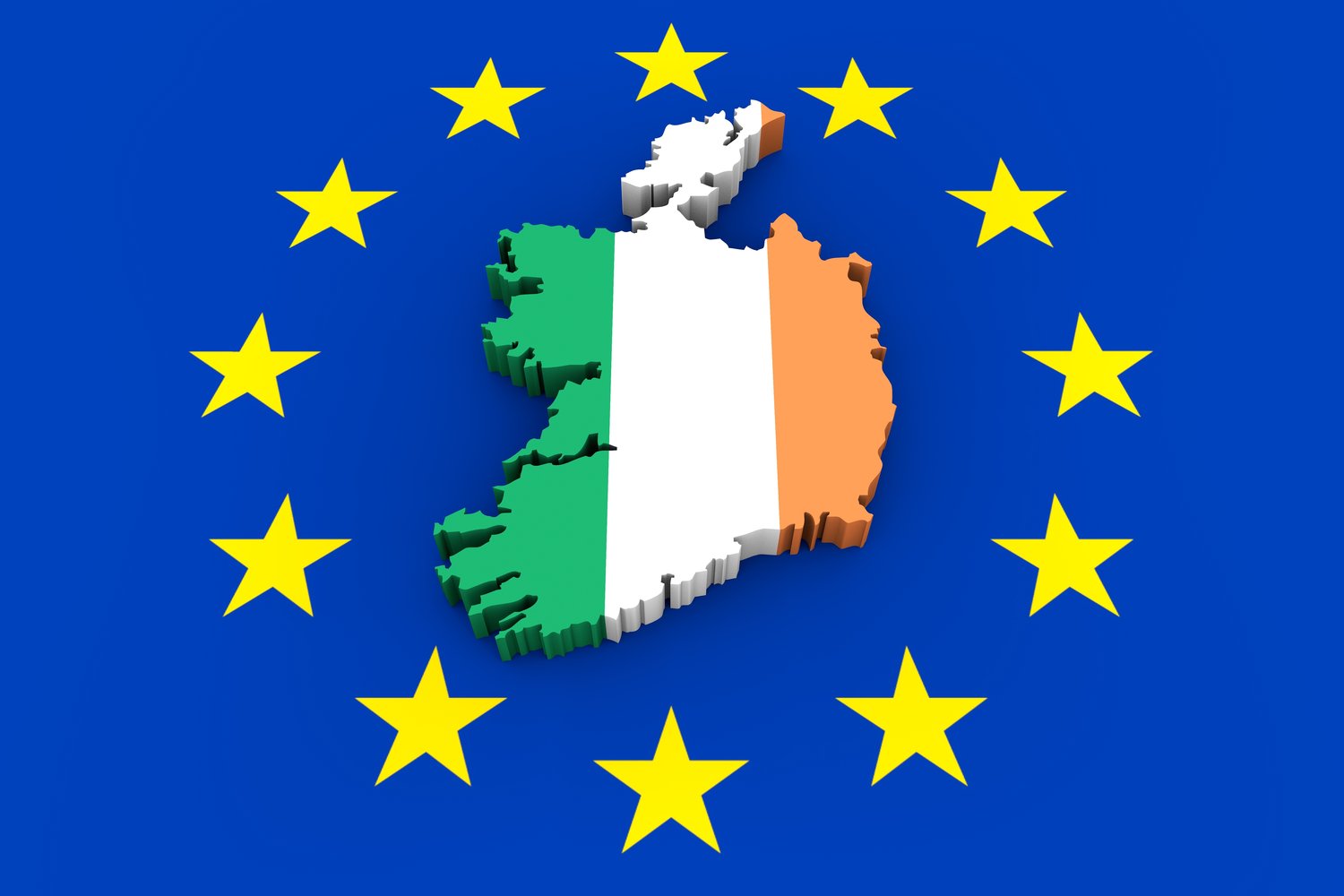EU comments on Bill indicate conflicts
The EU’s comments (which were submitted to the Irish government long before the additional labelling amendments were approved in the Seanad late last year) were unavailable from the EU Commission’s Press Office here in Dublin but Drinks Industry Ireland obtained a copy of them and they appear to be in direct conflict with EU free-trade policy at many junctures.
While the Commission is supportive of Member States taking action against alcohol-related harm, it points out that such measures “should be evidence-based, proportionate and implemented on a non-discriminatory basis”.
Thus measures to be introduced on the grounds of protection of health and life of humans can be implemented “only if that measure is appropriate for securing the achievement of the objective pursued and does not go beyond what is necessary in order to attain it”.
Labelling
The Commission highlights the disproportionate nature of the Bill’s labelling proposals, for example, stating that, “Member States may not adopt nor maintain national measures unless authorised by Union law” in regard to the matters specifically harmonised by EU regulation.
Additionally, on labelling, it states that, “national measures shall not give rise to obstacles to free movement of goods, including discrimination as regards foods from other Member States”.
It points out, “Section 11(1)(iv) of the notified draft [Irish Government Submission] which requires the particular of the nutrition declaration to be indicated on the container of an alcohol product would be in breach of Article 16(4), the first subparagraph of Regulation (EU) No 1169/2011”.
The Commission notes however that Section 11(10) of the ‘notified draft’ permits the Minister for Health to prescribe the form of labael warnings, including their size and colour and the size, colour and font type of the printed material on the warnings concerned.
The EU additionally notes, “Section 11(1)(iii) of the notified draft, by requiring the indication of the alcohol content in grams, in addition to the alcohol content by vo

lume as laid down in Article 9(1)(k) of Regulation (EU) No 1169/2011, would be in breach of Article 9(1)(k) and Article 28 of Regulation (EU) No 1169/2011”.
Overall, the Commission points out that such provisions must be “proportionate to the objective pursued and the objective must not be capable of being achieved by measures which are less restrictive of intra-EU trade”.
Therein lies the rub.
Advertising
In relation to the advertising restrictions on alcohol in the Bill the EC notes that the Bill will impact imported publications intended for sale or distribution in Ireland as it would change the conditions that these publications must meet to be lawfully marketed here from another Member State. This would constitute an obstacle to trade, it points out.
“This could inhibit the importation of publications from other Member States. As a result, such a measure raises concerns as to its compatibility with Articles 34 and 36 Treaty on the Function of the EU.”
In this context it states that it is necessary to determine whether there exists “alternative measures that are also capable of attaining that objective while at the same time having a less restrictive effect on intra-Community trade.”
Complying with these requirements would require changing the characteristics of the goods and incurring additional costs to enter the Irish market. Thus, such restrictions would constitute obstacles to trade in breach of TFEU Article 34.
The Commission also points out that, “All information concerning the effects of wine consumption on health and behaviour shall be based on generally accepted scientific data and shall be accepted by the national authority responsible for public health in the Member State where the operations are carried out”.
In light of the above, the EU has invited the Irish government “to confirm that the advertisement restrictions indicated in the notified draft would not affect the information campaigns related to responsible consumption of wine”.
The Commission argues that similar EU Court case precedent had found that a similar prohibition on advertising elsewhere in the EU not only prohibited a form of marketing a product but in reality prohibited “producers and importers from directing any advertising messages at consumers, with a few insignificant exceptions”.
It must therefore be regarded as “affecting the marketing of products from other Members States more heavily than the marketing of domestic products and as therefore constituting an obstacle to trade between Members States”.
In view of this precedent, the EU has invited the government to consider whether, in the circumstances that characterise the situation in Ireland, the restrictions are proportionate.
It concludes, “The Irish authorities should consider the impact of these restrictions on related fundamental rights, such as freedom of expression and information, in particular freedom and pluralism of the media.”
MUP
The Commission’s comments also address Minimum Unit Pricing where a Member State must be precluded from choosing the option of legislation – “such as that at issue in the main proceedings” – in order to pursue the objective of the protection of human life and health by means of increasing the price of the consumption of alcohol.
The Bill imposes a MUP on alcoholic drink retailing and rejects a measure such as increased excise duties, a measure that may be less restrictive of trade and competition within the EU, observes the Commission.
The EU firmly points out, “A Member State may exclude once-and-for-all any possibility for producers or importers to absorb, even temporarily, the impact of taxes in the retail selling price of products by selling them at a loss, through the prohibition of sales of those products at a price below the sum of the cost price and all taxes”.
Elsewhere, the EU comments that the government’s Regional Impact Assessment “only evaluates the effects of cross-border trading as regards the risk that Irish residents will turn to buy the alcohol in Northern Ireland but not as regards the effect on intra-EU trade”.
Neither does the government’s RIA take into account “that a minimum price per unit for the retail selling of wines is liable to undermine Regulation (EU) No 1308/2103, in that such a measure is incompatible with the principle that is the foundation of that regulation: the free formation of selling prices of agricultural products on the basis of fair competition”.
The EU Court had previously ruled that a minimum price per unit is liable to undermine the Common Markets Organisation’s (Reg 1308/2013) concept of an open market to which every producer has agreed access under conditions of effective competition.
The EU also uses Court precedent to argue for raising excise taxes rather than introduce MUP, urging that “a fiscal measure which increases the taxation of alcoholic drinks is liable to be less restrictive of trade in those products within the European Union than a measure imposing an MUP”.
Citing Scotland’s introducing MUP, the EU explains why it is against it: “The reason is, as stated in paragraph 21 of this judgement, that the latter measure, unlike increased taxation of those products, significantly restricts the freedom of economic operators to determine their retail selling and consequently, constitutes a serious obstacle to access”.
Overall, the Commission’s comments highlight the need for the government to make reasonable amendments to some of the measures being proposed, according to the Alcohol Beverage Federation of Ireland here.

ABFI view
According to these comments, some proposals in the Bill constitute restrictions on trade or the freedom to provide services, explained ABFI Director Patricia Callan, “The EU Commission states that the labelling proposals in the Bill may conflict with EU law. It should be noted that harmonised regulation in this space is currently being developed at an EU level and last month a new EU-wide commitment by drinks producers to provide more nutritional information and listing of ingredients was presented to the EU Commission.
“The requirement to create Irish-only labels will put Ireland out of step with the EU and the requirement for an Irish-only label, which would be the result of this Bill, would mean that products might be withdrawn from the Irish market or new products might not be introduced.
“It should be noted that these comments by the EU Commission were submitted before the Amendments to the Alcohol Bill were accepted by the Government in the Seanad,” added Patricia Callan. The Amendments to the Bill include the requirement for a cancer warning label to be added on all alcohol products.
“No other country in the EU, or indeed the world, has introduced mandatory cancer warnings on alcohol products, again putting Ireland completely out step with the rest of the EU,” she warned, “This requirement further adds to the disproportionate nature of this Bill.
“This year is the 25th anniversary of the Single Market and in our view the measures proposed in the Bill could undermine the single market’s integrity.
“The EU Commission states that the Government should consider whether less restrictive measures could achieve the same public health goals. In light of this view, we believe the Government should make a number of reasonable amendments to the Alcohol Bill.”
The requirement for Irish-only labels, including a cancer warning label, to be included on all products sold in the Republic of Ireland and covering at least one-third of all printed materials, has emerged as a hugely contentious aspect of the Alcohol Bill as it’s expected to create a trade barrier.
In addition to Italy, Portugal and the Commission itself, the US has warned that the proposed measures could “detrimentally impact the ability of US exporters to reallocate product in the European market”. It notes too that proposals in the Bill diverge from EU-wide requirements.
“Introducing Irish-only labels will impose significant costs on Irish producers and distributors because they will be required to develop labels specifically for the Irish market and a second set of labels for elsewhere,” noted Patricia Callan, “Likewise, producers and distributors that supply products to Ireland (ie Italian and Portuguese wine producers) will have to create labels specifically for the Irish market which will also be costly and logistically difficult.”
Recently, the EU Agriculture Commissioner Phil Hogan confirmed in the Seanad that the Bill will be delayed for three months due to the concerns raised by Italy and Portugal, as the Irish government will have to respond to these concerns.
A further seven countries submitted comments which illustrates the significant interest in the Bill and international concerns with regard to certain measures being proposed, she said.
While the nuts and bolts of this legislation remain largely unaltered, the additional Amendments to the Bill introduced before Christmas saw the government sending the Commission these Amendments in January and the Commission’s views on these have just been sent in to the Irish government.








